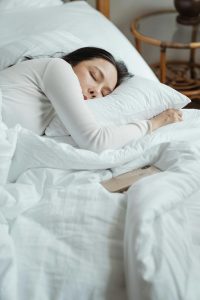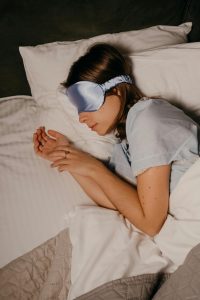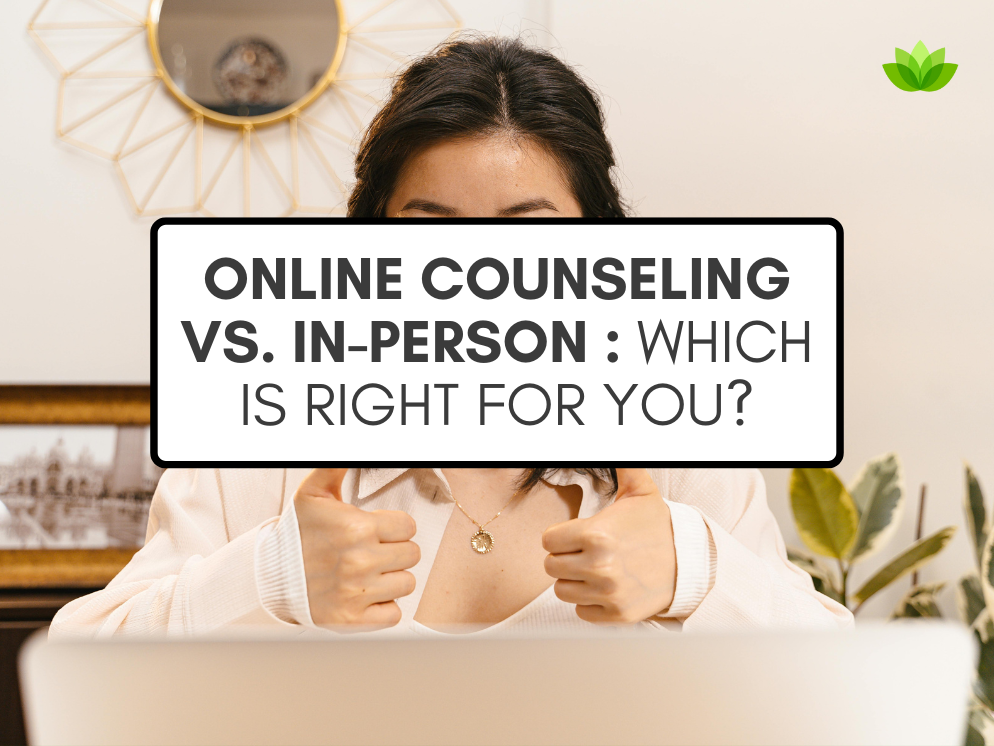- Virtual Counseling vs. In-Person Counseling: Which is Right for You? - May 6, 2025
- A Guide to Understanding Trauma Recovery with Critical Incident Stress Debriefing (CISD) - February 27, 2025
- How to Survive the Holiday Season - December 10, 2024
Do you have trouble sleeping?
Unfortunately, a lot of us do. In fact, according to this study from NCOA (National Council on Aging), published this January:
- 13.5% of American adults (over 18 years of age) reported feeling tired most days.
- More than a third of Americans report getting less than seven hours of sleep in 24 hours.
- 30% of adults have symptoms of insomnia, with 10% having insomnia that impacts their daily activities.
- Sleep apnea impacts 9%–38% of the general population.
- One in five American adults experiences sleep deprivation.
Why is getting enough sleep a health issue?
 Feeling tired isn’t the only consequence of not getting enough sleep. While our culture doesn’t prioritize rest, it’s crucial to our functioning, and when we don’t get enough, it can impact not just our energy level but our overall health.
Feeling tired isn’t the only consequence of not getting enough sleep. While our culture doesn’t prioritize rest, it’s crucial to our functioning, and when we don’t get enough, it can impact not just our energy level but our overall health.
Some of the ways sleep deprivation can impact you include:
- Unpredictable mood: poor quality sleep can make it difficult to regulate your mood and emotions, leading to increased irritability, moodiness, quick temper, etc. Chronic sleep deprivation can be a contributing factor to anxiety and depression.
- Reduced cognitive functioning: Your brain needs rest–when you don’t get enough, you can’t think as quickly, and you may have difficulty with problem-solving, staying concentrated, or tapping into your creativity.
- Difficulty with memory: Sleep is crucial for memory; when we’re asleep, our brains form connections that will help us access the information we already have and process new information.
- Weakened immune system: without proper sleep, your immune system can’t keep up, and you’re, in turn, more likely to get sick.
Lack of sleep can also contribute to high blood pressure, low sex drive, and poor balance–increasing one’s risk of falling and other physical accidents.
What contributes to poor sleep?
Many factors contribute to poor quality sleep. Some of them are completely out of our control, but some we can do something about!
Things that contribute to poor sleep include:
- Chronic illnesses such as sleep apnea or insomnia
- Chronic pain causing physical disturbances throughout the night
- Relationship or workplace stress
- Anxiety, depression, chronic stress
- Environmental factors (noise, light, etc.)
- Poor sleep hygiene
What is sleep hygiene?
Sleep hygiene is a term that simply refers to your sleep routine and environment. It focuses on the factors that contribute to poor sleep quality that we can do something about. 
For example, if you have sleep apnea, you can’t just get rid of it to sleep better. But you can make sure your sleeping environment is optimal for your sleep, adjusting for factors you can control, such as light, sound, temperature, etc.
Here are 4 tips to improve your sleep hygiene:
1. Consider your environment
What is the light like when you’re sleeping?
Too much light can contribute to low-quality sleep. While you might feel like you’re “used to it” eliminating disruptions, like light at night, can help you sleep much better.
If there’s a lot of light coming through your windows, consider black-out curtains to prevent them from coming in and waking you up before you’re ready. Or, if you can tolerate wearing it as you sleep, consider an eye mask to block out light until you wake up naturally!
Is your bed right next to a window? Is your window facing a popular, busy area like a main street? There might be a lot of noise coming in and disturbing your sleep.
 While you can’t change the traffic outside your window, you can consider some white noise to block it out. iPhones have a “background noise” option in accessibility settings, or you can purchase an actual noise machine to turn on and off as you sleep.
While you can’t change the traffic outside your window, you can consider some white noise to block it out. iPhones have a “background noise” option in accessibility settings, or you can purchase an actual noise machine to turn on and off as you sleep.
2. What’s the temperature?
Most people sleep best when it’s a bit cooler (about 65ºf). If you live in a building without control over the temperature, consider getting a room fan (which can also help with white noise!) to help regulate the temperature as you sleep. Changing the type of sheets you have can also help moderate your temperature as you sleep.
3. Establish a routine
Having a routine for shifting from your day to getting ready for bed can help signal your body & mind to wind down as you begin the routine.
It doesn’t have to be an intricate routine but try to make one you can keep up with. Consistency is key to teaching your body when it should be ready to rest.
It can help to avoid screens before bed. Between an hour or half an hour before bed, turn your devices off for the night. Or, if you need to set an alarm on your phone, set it an hour before you go to bed and use that as a signal to put it down for the night and get started with your routine.
Taking time to stretch, breathe deeply, or meditate before bed can also help you slow down and shift into rest mode.
4. Consider your obstacles
Do you frequently wake up needing to use the bathroom? Can you try carrying a water bottle with you throughout the day so you can stop drinking water an hour or so before bed?
That way, there’s one less contributing factor to needing to get up to use the bathroom frequently. Also note that waking up frequently to use the bathroom can be a symptom of a larger medical issue, like sleep apnea, so it’s always a good idea to talk to your doctor if this is an obstacle to your sleep.
Do you have chronic pain that keeps you up at night? Are there any low-effort remedies that help to relieve that pain?
For example, if you suffer from headaches that disrupt your sleep, you can consider a heated sleep mask to help with the pain and block out any light as you sleep.





 Call
Call
 Schedule
Schedule
 Contact Us
Contact Us

Comments are closed.